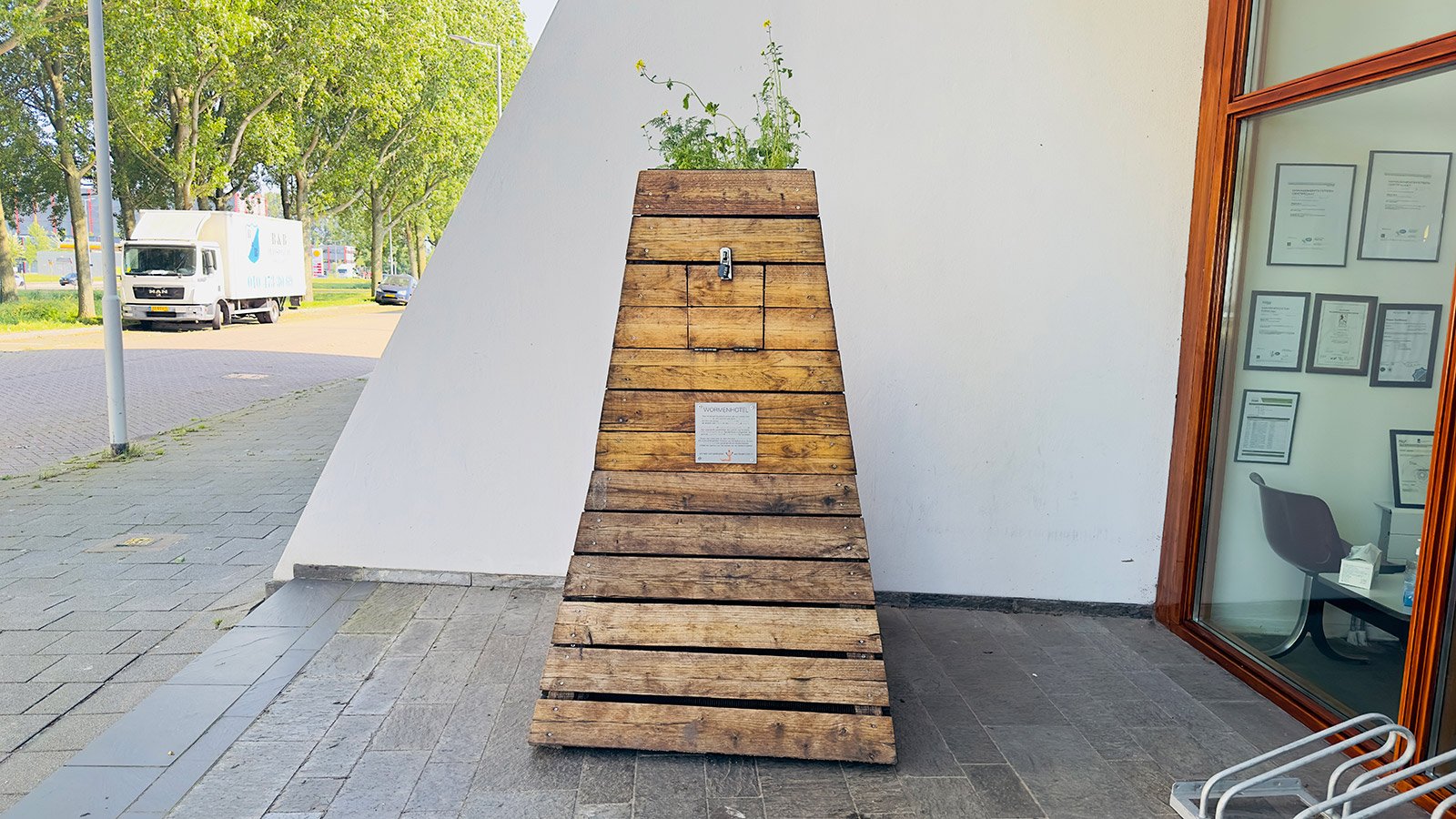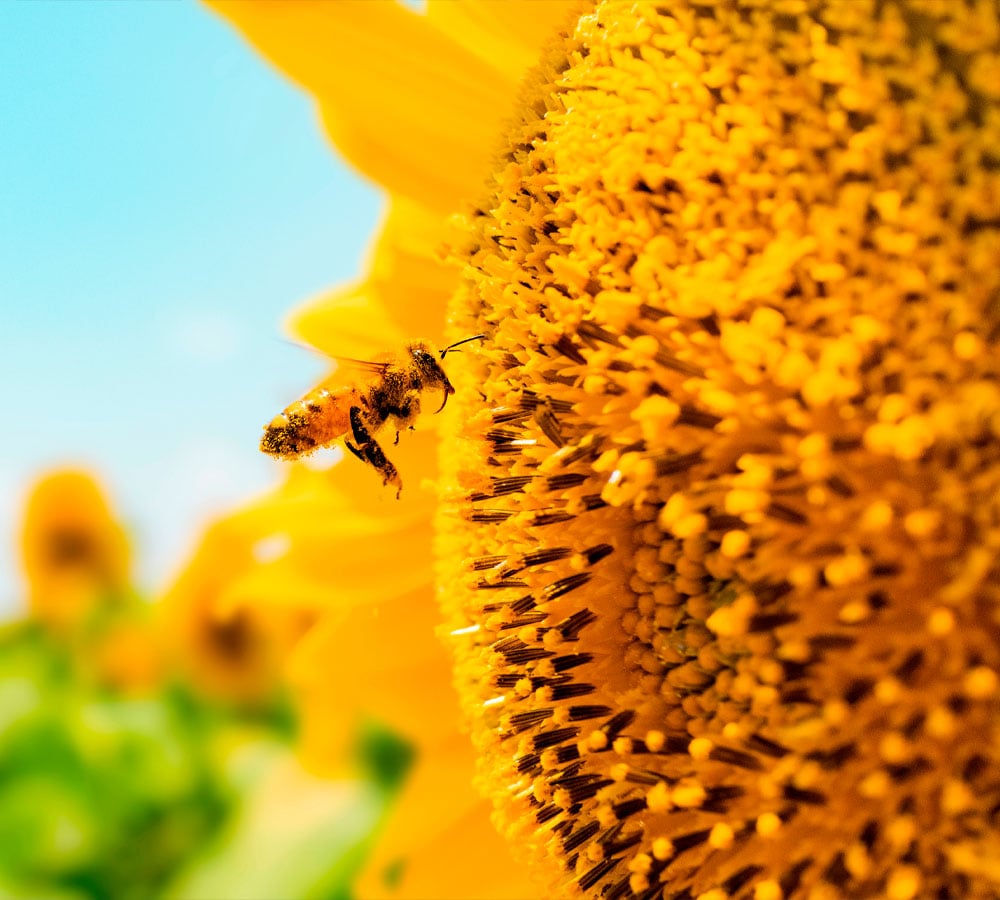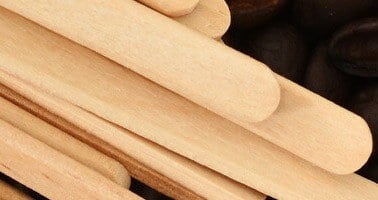Since July 3, 2021, the Single-Use-Plastics Directive has been in effect in the European Union. This legislation bans the use of disposable plastic products such as cutlery, plates, straws and stirrers. The purpose of this directive is to curb plastic pollution and encourage companies to switch to more sustainable alternatives.
After the implementation of this ban, companies had to look for a suitable alternative. Wood became a popular choice. This material is renewable and biodegradable. But where is the best place to dispose of these wooden cutlery and stirrers? And are there more sustainable alternatives? Our Zero Waste Officer Milan figured it out. Read along.
The material of stirrers
Many wooden cutlery and stirrers are made of bamboo: and strong and light material that is fully compostable.
Bamboo is known for its rapid growth. Some species can grow up to 91 inches per day, and a mature bamboo plant is ready for harvest in as little as 3 to 5 years.
Another advantage of bamboo is that it does not need to be completely cut down. Unlike trees, whose entire trunk is removed, bamboo grows from an underground root system that remains intact. This means that once harvested, new bamboo continues to grow naturally, without the need for replanting. This prevents deforestation and better preserves soil structure.

Where do wooden stirrers belong?
A cup of coffee on the go, you stir in some milk or sugar to flavor it: then what? Where do you throw away the wooden stirrer? Our Zero Waste Officer Milan investigated the possibilities.
Can it go in the kitchen waste?
Not by default. Although wood is biodegradable, it takes longer to compost than food scraps and garden waste. Industrial composting plants-where composting takes place on a large scale in long tunnels-operate with a composting process that usually takes between 2 and 6 weeks. However, wooden cutlery and stirrers break down much more slowly and cannot be properly processed within this time frame.
Are there exceptions?
Yes. In a worm hotel, wood can break down over time. It does take longer than digesting food scraps, but the material eventually breaks down completely. A tip: Break cutlery and stirrers into small pieces so the worms can process it better.
Did you know that since 2023 we have had our own worm hotel at our zero waste office?

Are there recycling options for wooden cutlery and stirrers?
Currently, wooden cutlery and stirrers are not collected separately for recycling. This is mainly due to contamination: because they are often soiled with coffee and food residues, they can interfere with the recycling process.
Why shouldn't wooden stirrers go with the waste paper?
Although wood and paper both contain cellulose (a natural polymer and the main building material of plants and trees), wood fibers are longer and sturdier, so wooden cutlery and stirrers do not dissolve well in the paper recycling process.
Alternative solutions
Our Zero Waste Officer wouldn't be an expert if he didn't look for more sustainable alternatives. Below, he lists some sustainable solutions:
Solution 1: Cutlery and stirrers made from sugarcane fiber
Sugar cane fiber is the residual product left over after the juice is extracted from sugar cane during sugar production. Instead of ending up as waste, this product is cleaned, ground and compressed into compostable products such as cutlery and stirrers. Companies such as Bioodi and Moonen Natural are already using sugarcane fiber.
These products are usually allowed in the GFT waste, because sugarcane fiber breaks down faster than wood. However, it is important to check whether they are certified compostable. This can be recognized by the Kiemplant logo or OK-Compost logo. If they do not have this label, it is possible that they are not suitable for the kitchen and garden waste bin and still end up with the residual waste.
Solution 2: Cutlery and stirrers made of wheat straw
Wheat straw is the dry, fibrous material left over after harvesting wheat. This residual product is often used as animal feed or burned, but can also serve as a raw material for compostable cutlery and stirrers. Companies such as Eco-products and Bio Futura supply compostable wheat straw products to catering and business establishments.
In many cases, these products are allowed in the kitchen and garden waste, provided they are certified compostable. As with sugarcane fiber, they must have a Kiemplant logo or OK-Compost logo. If this label is missing, there is a good chance that they are not suitable for the compost bin and will end up in the residual waste.
Solution 3: An obvious but sustainable option
It may seem obvious, but reusing metal cutlery and coffee spoons - as found in the cutlery drawer at home and/or in the office - remains the most sustainable option. Using reusable cutlery prevents waste from disposable products.
Idea or solution? We would like to hear it
Fortunately, there are more sustainable alternatives. The most sustainable choice is reusable cutlery, such as metal coffee spoons, because it completely eliminates the use of disposable products. When reuse is not an option, compostable materials such as sugarcane fiber and wheat straw are a better alternative than wood, provided they are certified compostable.

Ask our Zero Waste Officer
Not sure if certain items in your office are unnecessarily ending up in residual waste? Milan is happy to help. Send your question to marketing@milgro.nl and we’ll get back to you with a tailored solution for your residual waste stream.
Stay informed
Stay up to date on all new developments? Follow us onLinkedIn and Instagram or subscribe to thenewsletter. Are you curious about what Milgro can do for your operations and waste process? Then get in touch.












